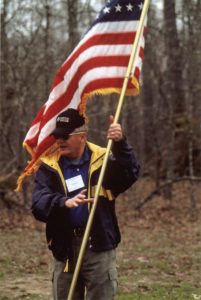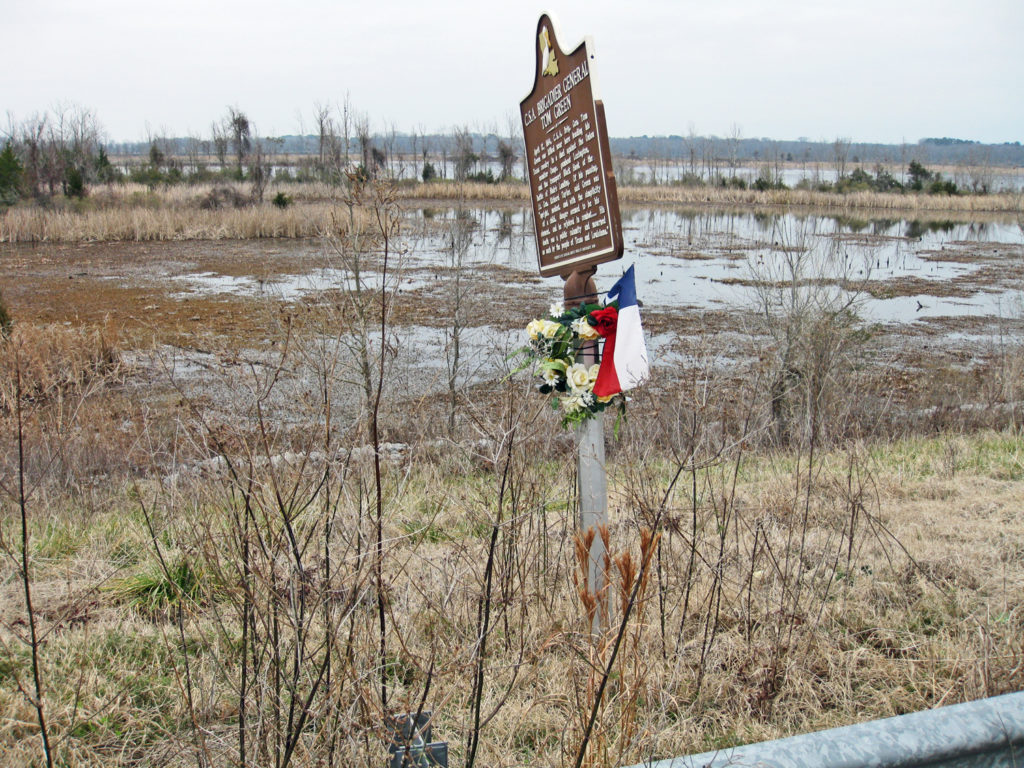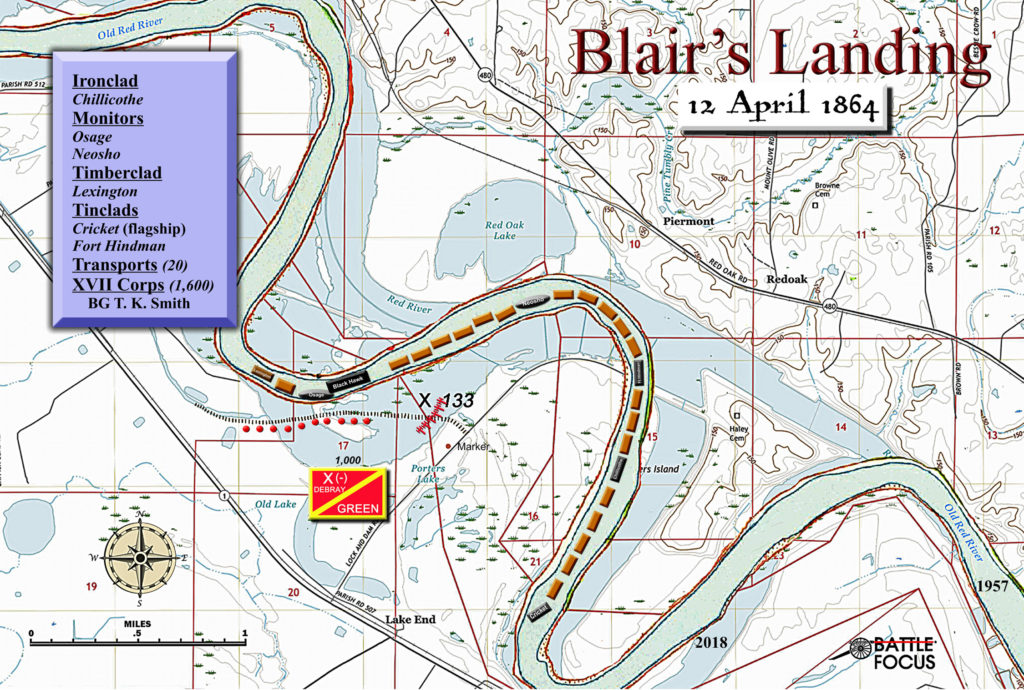BGES returns to Cajun Country in May 2022 to examine the last decisive Confederate victory of the Civil War. A major part of the discussion involves Union Maj. Gen. Nathaniel Banks, whom historians claim floundered. We are honored to be led by Parker Hills,a retired brigadier general who is an expert on Mississippi Battlefields. We caught up with Brigadier General Hills to get his take on the Red River Campaign, and what his tour participants should expect.

BGES Blog: Give us the 3-sentence low-down of your tour.
PH: Whenever I think about the Red River Campaign, I am reminded of two generals who lived 174 years apart and were born over 4,500 miles from one another: First is Prussian Gen. Carl von Clausewitz, in his classic work, On War, wrote that “war is not merely a political act, but also a real political instrument, a continuation of political commerce, a carrying out of the same by other means . . . the political view is the object, war is the means, and the means must always include the object.” Second is American Gen. William Westmoreland, who pithily stated, “The military don’t start wars. Politicians start wars.” To me, the 1864 Red River Campaign is the epitome of these statements.
BGES Blog: What should attendees expect on your tour?
PH: After a thorough PowerPoint program orientation the night before, we will follow the historic routes of the armies as best as the modern road networks will allow. By so doing, we will somewhat experience what the soldiers and commanders experienced. Of course, we will not trudge the muddy or dusty roads and suffer the deprivations of the soldiers, but we will see where they marched and fought.
BGES Blog: What are some tour highlights?
PH: We will visit the battlefields of Henderson’s Hill, Mansfield, Pleasant Hill, Blair’s Landing, Monett’s Ferry, Mansura, and Yellow Bayou, and in Alexandria, we will see how and where Union Col. Joseph Bailey saved Adm. David Porter’s naval flotilla from certain destruction. We will travel to Avery Island, Louisiana, which was a Confederate salt mine during the Civil War, but is now the home of the world-famous Tabasco sauce, and we will lunch at the Tabasco restaurant, “1868.” We will visit the city of Natchitoches (pronounced NACK-a-dish), Louisiana, made famous by the movie that was filmed there, Steel Magnolias. We will follow the Union retreat down the Cane River, and we will visit a plantation where General Banks headquartered, and which was later the stage for scenes shot in the movie, The Horse Soldiers. Remember Hannah Hunter (Constance Towers) and “Ding dong. Ding dong”? That scene was in this house.

BGES Blog: Can you give a quick vignette that might give us a flavor of the tour?
PH: We will visit the very rural battlefield of Pleasant Hill, where the Federals staved off disaster from a vicious Confederate attack on April 9, 1864, thanks largely to Union Gen. A. J. Smith’s troops, who were on loan from Sherman’s Army of the Tennessee at Vicksburg. It was a pyrrhic victory for Banks, however, as after the battle he faced a tremendous degree of dissension with his commanders over his decision to continue the retreat and abandon the wounded—there was even talk of mutiny at the highest levels. It was an unusual day in the Civil War.
BGES Blog: Why did you decide to lead this particular tour?
PH: This campaign has largely been overlooked by most historians, so the interpretation is sparse and many of the sites have been forgotten or have not been interpreted. But we will visit them. By doing this, we will be honoring the oft-ignored soldiers who participated in the Red River Campaign.
BGES Blog: The multipronged-Union attack comprising the Red River Campaign attempted to establish firm control of Louisiana, among other objectives, but backfired. How would you respond to the comment that the campaign extended the length of the war?
PH: The Chinese general Sun Tzu wrote that if a general tries to be strong everywhere, he will be weak everywhere. So, of course, that maxim applied when troops were diverted to the Red River Campaign from the main efforts, which were Sherman’s Atlanta Campaign and Grant’s Overland Campaign of early May 1864. Still, this comment only considers the military operations and ignores the political goals of the Red River Campaign. Were they achieved? We will discuss this.
BGES Blog: What does your tour offer that other tours don’t offer?
PH: I was a soldier for over 30 years, and during my last 14 years in uniform I regularly used American military campaigns and battlefields for training. Starting in 1987 at Shiloh, I have conducted scores of military staff rides on maneuver routes and battlefields around the nation. I trained soldiers, Marines, airmen, and civilians. The one thing that I quickly learned, especially after studying Clausewitz’s On War, was that tactics change, weapons change, and even the terrain may change, but the one constant in every war is human nature. So, while my tours study the terrain, the tactics, and the weaponry of the day, they also “crawl into the head” of the leaders to point out their strengths and weaknesses while analyzing their decisions. A military strategist, the late Bernard Brodie, wrote that On War “is not simply the greatest but the only true great book on war.” I somewhat disagree with Dr. Brodie, as I believe that, aside from the study of war, On War is the greatest book on psychology that I have read. As such, I not only interpret campaigns from a soldier’s point of view; I cover the psychological point of view.

BGES Blog: What are you especially excited to share with your tour attendees?
PH: I am excited to share viewsheds of the Louisiana countryside, especially the Bayou Teche and the Cane River. Of course, there is the food, and we will dine on meat pies in Natchitoches and seafood on the Cane River and Avery Island, as well as barbecue in Alexandria.
BGES Blog: What do you hope your tour adds to the overarching understanding of the Civil War?
PH: I hope that those who experience this tour will leave with a much greater appreciation for this almost forgotten campaign. There is so much preservation work that can be done in Louisiana for the 1863 Bayou Teche Campaign, the 1864 Red River Campaign, and the 1863 Port Hudson Campaign. But education must come before preservation. This tour is part of the education process.
BGES Blog: Any final words?
PH: This campaign is a joint operations endeavor, so there should be something for everyone. The first night’s PowerPoint program will get everyone “up to snuff.” We will have plenty of field briefing maps to keep everyone oriented and to explain the action. The weather in the Deep South in May is wonderful. So, with great food, great weather, coverage of both the army and navy, with a few great movie sites thrown in, what more could you want?
